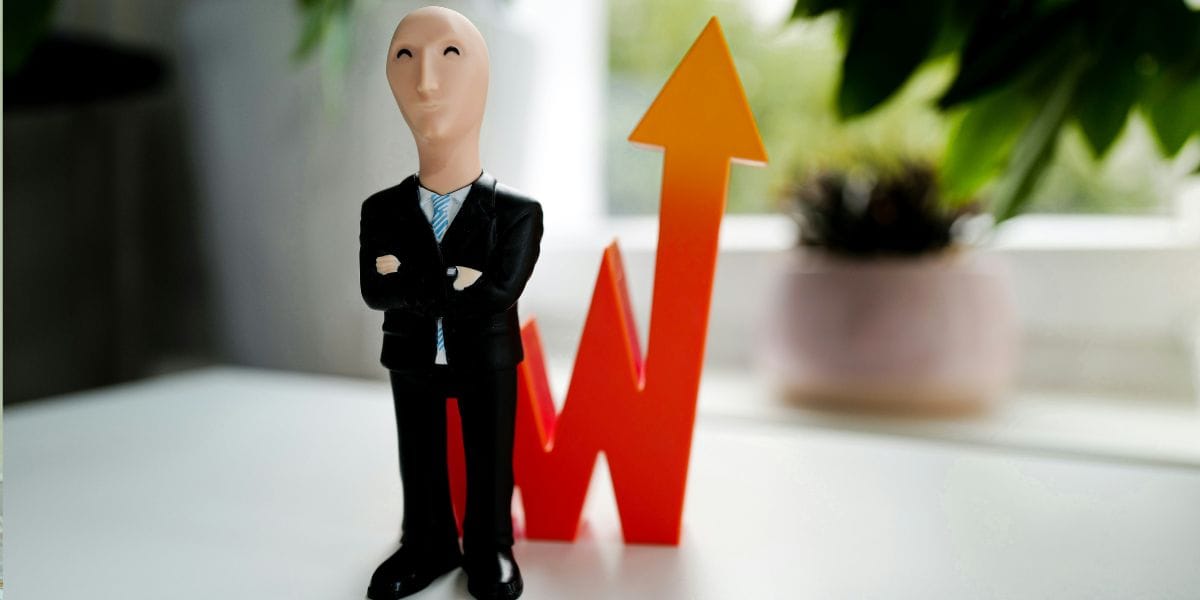Outline:
- Greed culminates in a selfish desire for something;
- Neuroeconomists track the interior activity of our brains and introduce the concept of “anticipation circuits”;
- Wealth is not absolute, it’s relative to desire.
Warren Buffett once noted that, despite his commitment to ethics, he wouldn't rule out holding up a store if he were broke, had two sick kids at home, and an empty fridge.
You do what you gotta do. It's why there's a correlation between poverty and crime.
But Buffett also ridiculed a suite of millionaire bankers who decided they wanted to try and get more millions and, you know, went to jail for it.
"To make money they didn't have and didn't need, they risked what they did have and did need. And that's foolish, it doesn’t matter what your IQ is,” said Buffett.
“If you risk something that is important to you for something that is unimportant to you, it just does not make any sense."
Risk vs greed.
Managing money often awakens what are sometimes referred to as ‘the animal spirits’. A soaring joy at the prospect of risk that which triggers a human competitiveness.
But beyond that, managing money can also awaken greed.
A different prospect to risk - which is understanding the potential of gaining or losing something of value - greed culminates in a selfish desire for something.
Greed is often characterised by a weak capacity for independent judgment with a strong appetite for measuring up against one's peers. But naked greed is a bottomless pit and a killer in investing; if you succumb to greed, it’s likely to unravel your entire personal finance strategy.
Ron Muhlenkamp noted, "For most people, 'The Game of the Stock Market' is a distraction that prevents them from making money in 'The Business of Investing'."
Temper greed, focus instead on what you can do with your money, work out how rather than how much of it you might need, and you’ll manage to build wealth in a sustainable way.
Rather than risking things that are important to us - like our future security or even financial freedom - it’s worth understanding what greed is and how to recognise it within yourself.
Understand the biology.
In a cruel irony, our investing brains come equipped with a biological mechanism that is more aroused when we anticipate a profit than when we actually get one.
Neuroeconomists track the interior activity of our brains, but long before they were doing that, Mark Twain was experimenting with the thrills of anticipating a jackpot and finding those thrills were much more electrifying than actually hitting it.
In his early memoir, Roughing It, Twain recalls what happened when he and a partner struck a vein of silver ore in Nevada in 1862.
Twain spent the entire evening in quite a state, “just as if an electric battery had been applied to me”. He fantasised so vividly about the two-acre estate he would build in San Francisco and the luxurious European adventure he would take, “that my visions of the future whirled me bodily over in bed”.
For ten wondrous days, Twain was a multimillionaire on paper.
Then, a legal technicality suddenly invalidated the partners’ claim over the silver and “sick, grieved, broken-hearted”, Twain never forgot the rush he’d had, thinking he was about to be rich.
Twain went on to mock and deride many other folks who had their hopes dashed at the prospect of good fortune, over a long and lustrous career. But despite Twain’s ability to acknowledge the extremes of greed in himself and others, he repeatedly sank his own money into risky ventures that offered the hope, but never the reality, of high returns.
Jason Zweig, author of Your Money and Your Brain, calls this the “anticipation circuits” in our brains. Where it actually feels better to anticipate making money than it actually does to make it.
Zweig likens it to buying lotto tickets and the same kick many folks get at the prospect of gambling.
We find out early - as children generally - that money is a modern member of an ancient group of feel-good experiences. Those are classified as basic rewards, like food, drink, shelter, sex, drugs, music and, interestingly, the attention of beautiful people.
Zweig points out that because we find out early (and often) that money is essential to providing many other pleasures, the reflexive part of the brain responds to the potential rewards. Just like it does at the prospect of a good meal or a wonderful concert.
“Anticipating a financial gain puts the reflexive part of your investing brain on red alert, focusing your attention keenly on the task at hand,” he writes.
“After you buy a stock, for example, you fixate on the possibility that it will keep going up. That thrill is limited only by your imagination. But the outcome itself - let’s say the stock does go up after you buy it - is less exciting, especially when you expected it all along.”
“By the time you pocket the money, the thrill of greed has faded into something that resembles a neurological yawn - even though you got the gains you wanted.”
Summed up: making money feels good, all right; it just doesn’t feel as good as expecting to make money.
Trying to capture that euphoria that engulfed him after his silver discovery, Mark Twain developed a recurring set of habits that saw him swing precariously between fabulous wealth and utter bankruptcy.
Over the years, Twain pumped cash and dreams into a dizzying variety of peculiar speculations, including a chalk-based printing process, a machine that could reproduce photographs on silk, a powdered nutritional supplement and an uncertain game-changer, spiral hatpins.
He was basically a 19th Century trigger-happy VC.
Unless we shine the light of reason and higher awareness directly at this selfish reactionary pattern of the human mind, there’s no hope of changing it - because significant change always starts from within.
In the same way we can develop discipline around not reacting impulsively to sexual urges or gorging ourselves on food any time it becomes available, acknowledging that greed gives off those same signals is the first step to tempering it.
Money is your tool.
Now we know that our brains are susceptible to “anticipation circuits” how are we going to leverage the rollicking markets without succumbing to silly investments?
Firstly, it’s worth thinking about what you'd like to do with your money, more than ways to go about getting it.
Wealth does not involve having many things, pointed out Jean-Jacques Rousseau, a Genevan philosopher in 1754, it involves having what we long for. Wealth is not absolute, it’s relative to desire.
Every time we seek something we cannot afford, we grow poorer, regardless of our resources and every time we feel satisfied with what we have, we can be counted as rich.
Think of your bank balance like your access to resources.
What can you do with your resources? What is it you actually would do with a healthy bank of dollars?
A whip around the Spaceship office turns up some interesting results.
Some want to educate themselves about music and build an enormous record collection.
Others want to spend their time decorating and pottering around their own place.
Others want to strap a camera to their heads and jump out of planes.
One wants to drape herself in Prada and Cartier, and learn to fly a Cessna 270.
In all of these circumstances, money is the leverage that can allow those things to happen. In none of them is accumulating money - the act of gathering money - the goal.
It’s worth dedicating your time to working out how you’d like to spend your time or what you’d like to own in the future.
This way, you can keep an eye on how greed manifests itself in your own character. Sometimes just being aware of how we are conditioned to act is enough to allow us to push back on that.
And like Buffett says, explosive wealth doesn’t happen very often, and if we try too hard we might end up in being much, much poorer.



